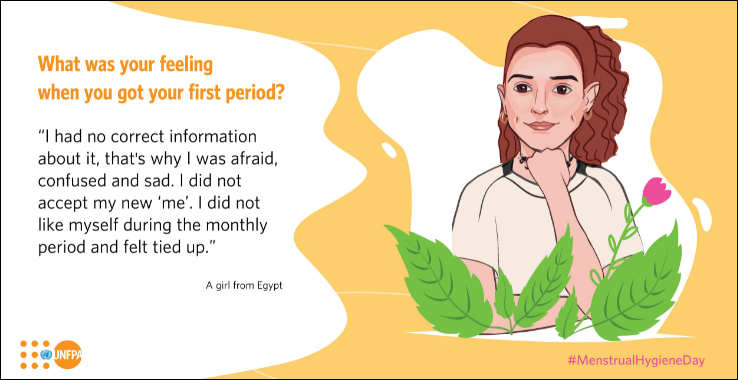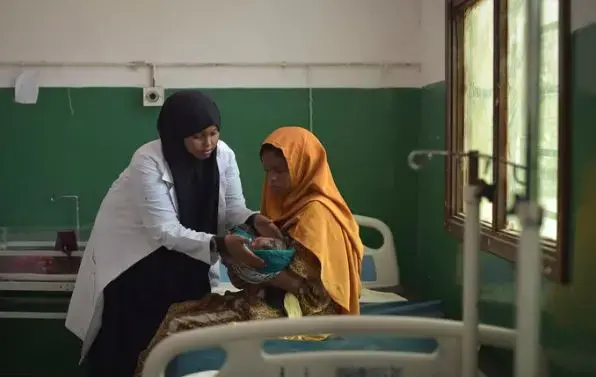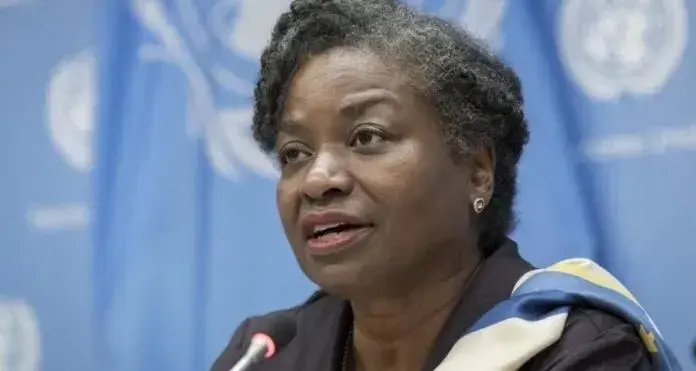Cairo, 1 June 2021 - Women and girls from the Arab region participated in a campaign led by Mariam, UNFPA Arab States Regional Office’s Virtual Ambassador, to break the silence on taboo, shame, restrictions and suffering girls face when they first encounter menstruation.
As part of the campaign, Mariam asked women and girls in the Arab region to share their experiences with menstruation through an informal online survey titled ‘My First Period’. The survey aimed to provide a platform for girls and women to share their experiences and feelings when they encountered their first menstrual cycle in the strictest confidence.

Menstruation is not discussed openly. According to a recent UNFPA informal online survey, 40% of participating women and girls did not have any information about the menstruation cycle prior to the first period. In response to a question about their first periods and the accompanying feelings, the majority of participants shared sentiments of fear and worry.
The UNFPA Regional Director for the Arab States, Dr. Luay Shabaneh, noted that gender inequality, discriminatory social norms, cultural taboos, poverty and lack of basic services in the Arab region affect the ability of girls and women to meet their health and hygiene needs during menstruation in a dignified manner.
"The United Nations Population Fund will continue, through its virtual ambassador, Mariam, to develop a series of initiatives targeting adolescent girls in the Arab region to raise their awareness about comprehensive sexuality and reproductive education and gender-based violence, including harmful practices to help empower them." Shabaneh stated.
Mariam, a 15 years old Arab girl, is here to highlight the struggles, problems, challenges, opportunities, and victories of adolescents and youth within the region.
UNFPA believes that every girl, wherever she lives, should realize that she is not alone and that most of girls face similar challenges. Menstruation is a fact of life and a natural monthly occurrence for the 1.9 billion girls and women of reproductive age globally, 107 million of them live in the Arab region. Yet millions of adolescent girls and women across the world are denied the right to manage their monthly menstrual cycle in a dignified and healthy way.
The lack of reliable data and information on menstruation and the rare tools provided to adolescents’ girls in the region is alarming. Millions of girls are not rightly informed on safe and healthy transition into womanhood.
Managing a period is even more difficult for girls in humanitarian settings, as privacy is scarce and clean sanitation facilities are often lacking. Due to the limited financial resources, women and girls are forced to use unsafe and unhygienic menstrual absorbents, such as old rags, wood husks, dried cow dung or ash.
This can impact women’s and girls’ lives in many ways, limiting their mobility, freedom and choices, affecting their attendance in schools and participation in community life, compromising their safety, limiting their contribution to the economy and causing stress and anxiety.
It is also worth noting that close to two thirds of participants reported receiving support from their mothers or friends after they had their first period not before.
UNFPA works to improve education and information about menstruation and related human rights concerns. Through its youth programmes and comprehensive sexuality education efforts, such as the Y-Peer programme, UNFPA helps both boys and girls understand that menstruation is healthy and normal. UNFPA also helps raise awareness that the onset of menstruation does not signify a physical or psychological readiness to be married or bear children's challenges and concerns.
###
UNFPA delivering a world where every pregnancy is wanted, every childbirth is safe, and every young person's potential is fulfilled.
For more information, please contact:
Samir Aldarabi, Regional Communication Adviser Arab States Regional Office (aldarabi@unfpa.org) Cell:+201068484879





